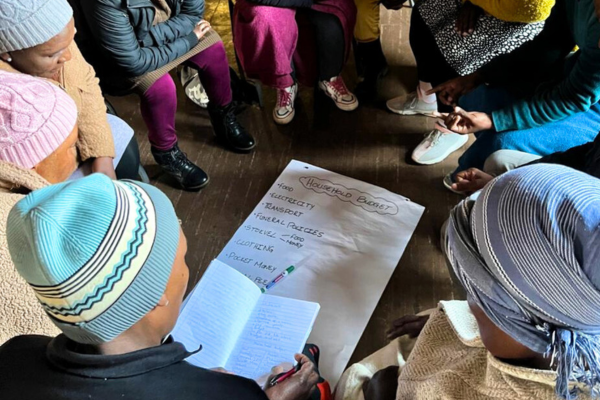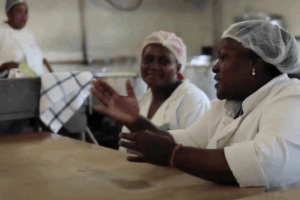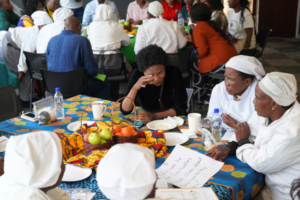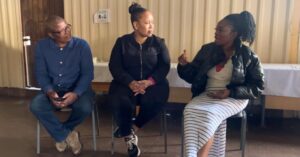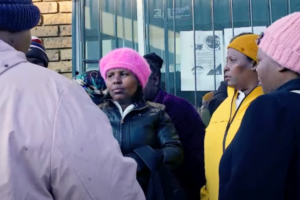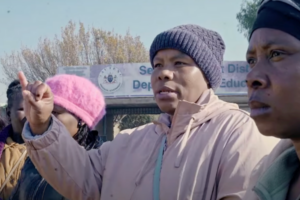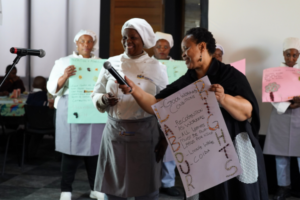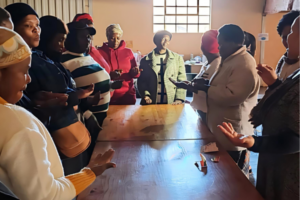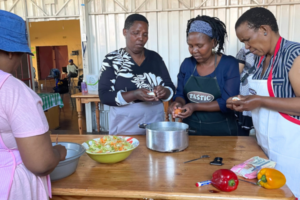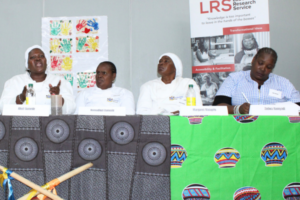Volunteer Food Handlers are gaining the tools to confront public budget decisions that devalue their work.
On 7 June 2025, forty women who cook and serve meals in schools met in Gauteng for the first LRS Thinking Laboratory with Volunteer Food Handlers. As the heart and hands of the National School Nutrition Programme, Volunteer Food Handlers feed over 9 million learners every day, yet remain invisible in policy, unrecognised as workers, and denied the most basic protections of decent work. Their labour sustains the education system, but national budgets continue to ignore their value.
Facilitated by the Labour Research Service (LRS), the Thinking Laboratory is part of a series of feminist learning spaces designed to support Volunteer Food Handlers in analysing the economic and political systems that shape their working lives. Through storytelling, embodied learning, and budget literacy, participants explored how their care work is undervalued and how public budgets conceal inequality.
The Thinking Laboratory contributes to a broader campaign by Volunteer Food Handlers seeking to reimagine the National School Nutrition Programme as a cornerstone of a care economy that centres wellbeing over profit, and values women’s labour. Volunteer Food Handlers are mobilising to claim their rights and are increasing their influence, building solidarity across public care sectors.
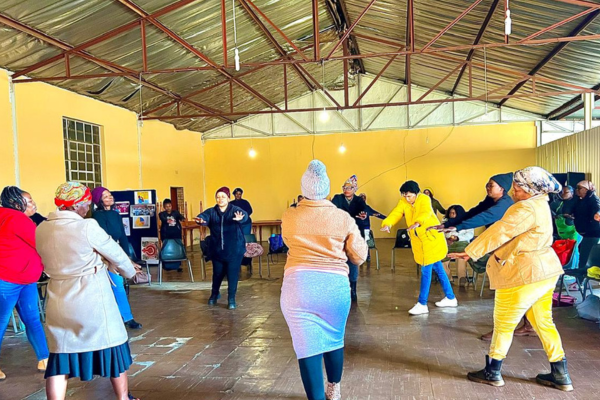
Volunteer Food Handlers begin the Thinking Laboratory with a tai chi exercise to centre themselves physically, mentally, and emotionally.
Understanding the concepts of percentages and averages: The Percentages Game
Volunteer Food Handlers learned about percentages using embodied learning practice, which considers that much of our learning is through doing, that it needs to be an engaging and inclusive experience, and that the physical environment where the learning takes place is key.
LRS facilitators linked percentages to familiar concepts, including matric results. Food handlers discussed local school pass rates, quickly grasping that a 98% pass rate means most learners succeeded.
In the Percentages Game, the 40 women standing in a circle represent 100%. They then split into halves (50%), quarters (25%), and 10% groups, calculating and rearranging based on the given percentages. The activity was engaging, with facilitators encouraging self-correction and reflection. The game simplified percentages, which led to a better understanding of home and national budgets.
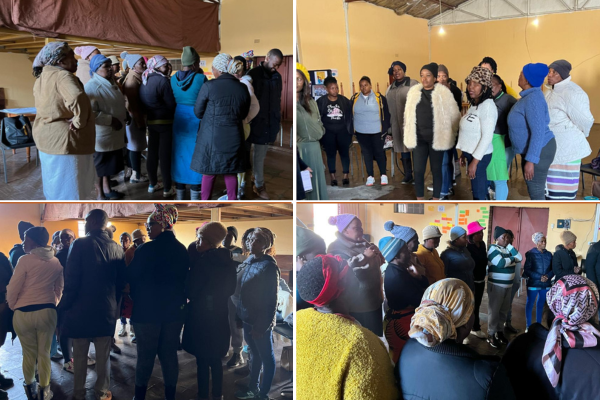
“The percentage game made a big concept easier to digest. Because we were part of it, listening, moving and thinking together.”
- Volunteer Food Handler.
How budgets are constructed: My Home Budget
The second key activity, My Home Budget, explored the elements of a budget and how a budget is made using percentage allocations. Volunteer Food Handlers imagined their household surviving on R2000 per month and made a budget. Working in small groups, they listed the needs, ranked them by importance and assigned percentage values to each. The debates were sometimes tense, with food handlers struggling to reach a consensus. The facilitators supported participants to focus on the key insight: that budgets reflect priorities, values, and power.
A collective pie chart displayed average allocations, with strong agreement on priority needs, including food, rent, electricity, transport, funeral policies, and stokvels.
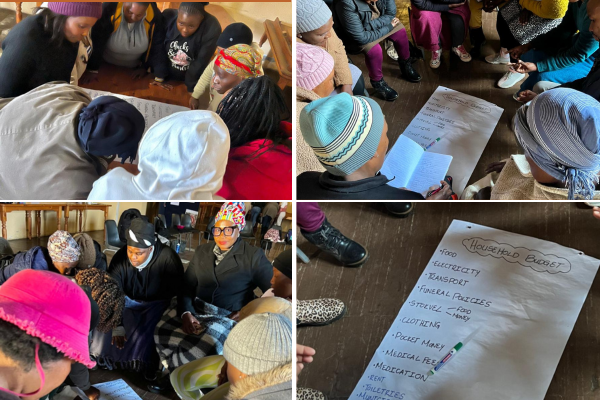
“This is only a home budget, and it was hard to agree. We could not agree because everyone was thinking about their household and what they could not live without. Now imagine trying to agree on a national budget.”
- Volunteer Food Handler.
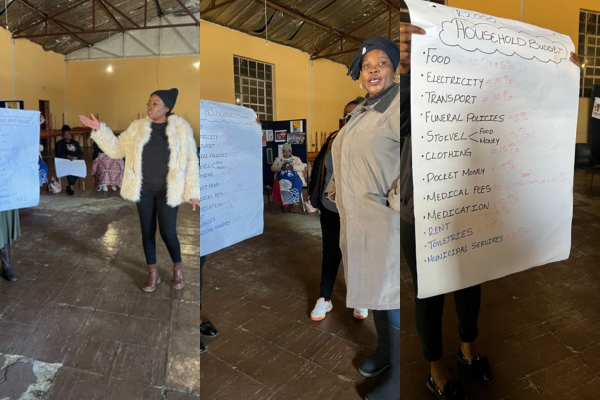
Budgeting is about numbers, negotiation, compromise, and trade-offs. Food handlers then asked: Who gets what in the national budget and why?
How budgets are constructed: The 2025 National Budget
What does the budget comprise, how is it divided using percentage allocations, what is the allocation to the basic education department and in turn, the National School Nutrition Programme budget?
In the final activity, participants applied their new understanding of percentages and budgeting to a national scale. Building from the household budget exercise, the facilitator drew an analogy: just as family members fight for more airtime or grocery money, politicians, departments, and interest groups lobby for bigger pieces of the national pie. But unlike the home, in national budgeting, those with formal power can silence others.
A pie chart of the 2025 National Budget was presented. Volunteer Food Handlers discovered that the National School Nutrition Programme receives just 1% of the education budget.
“We are not valued.”
Food handlers shared how their experiences reflect a lack of attention from policymakers. Despite their essential labour, they remain marginalised and overlooked. They agreed that recognition will not come without pressure. They spoke about the need to document their experiences, mobilise, and demand representation in policy spaces.
“If we want more in the budget, we have to speak for ourselves. The budget is about who and what gets prioritised. We should be part of those decisions.”
- Volunteer Food Handler.
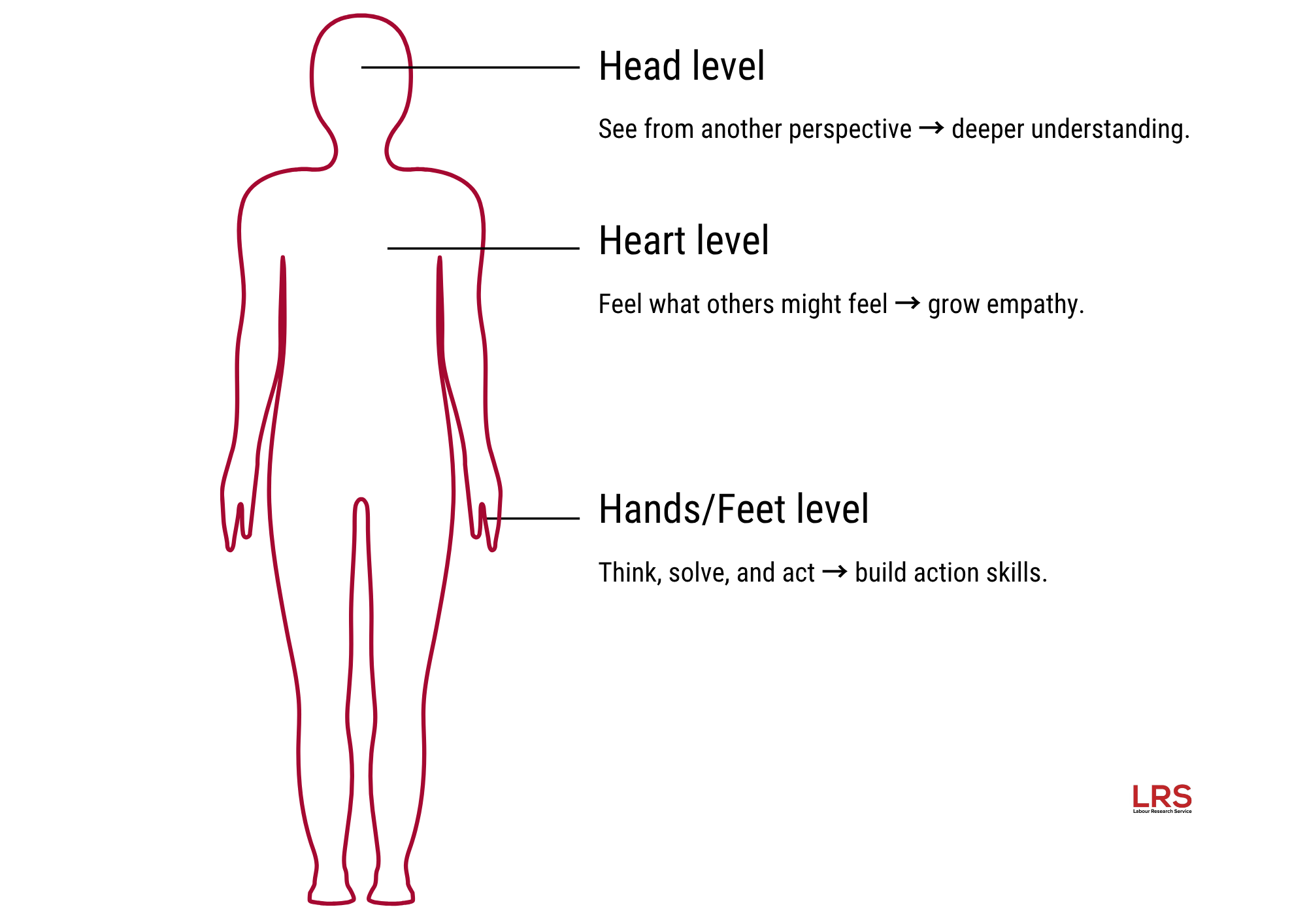
Amplifying voices
Volunteer Food Handlers understand how public budgets are made and contested, see themselves as political actors ready to advocate for a transformed National School Nutrition Programme that values care work and social justice, and they have ideas for actions:
- Writing a collective letter to government ministers.
- Speaking about conditions at work for Volunteer Food Handlers.
- Creating public stories that highlight their role in nurturing learners.
- Building alliances with other care workers.
- Exploring mobilisation strategies, including consumer boycotts.
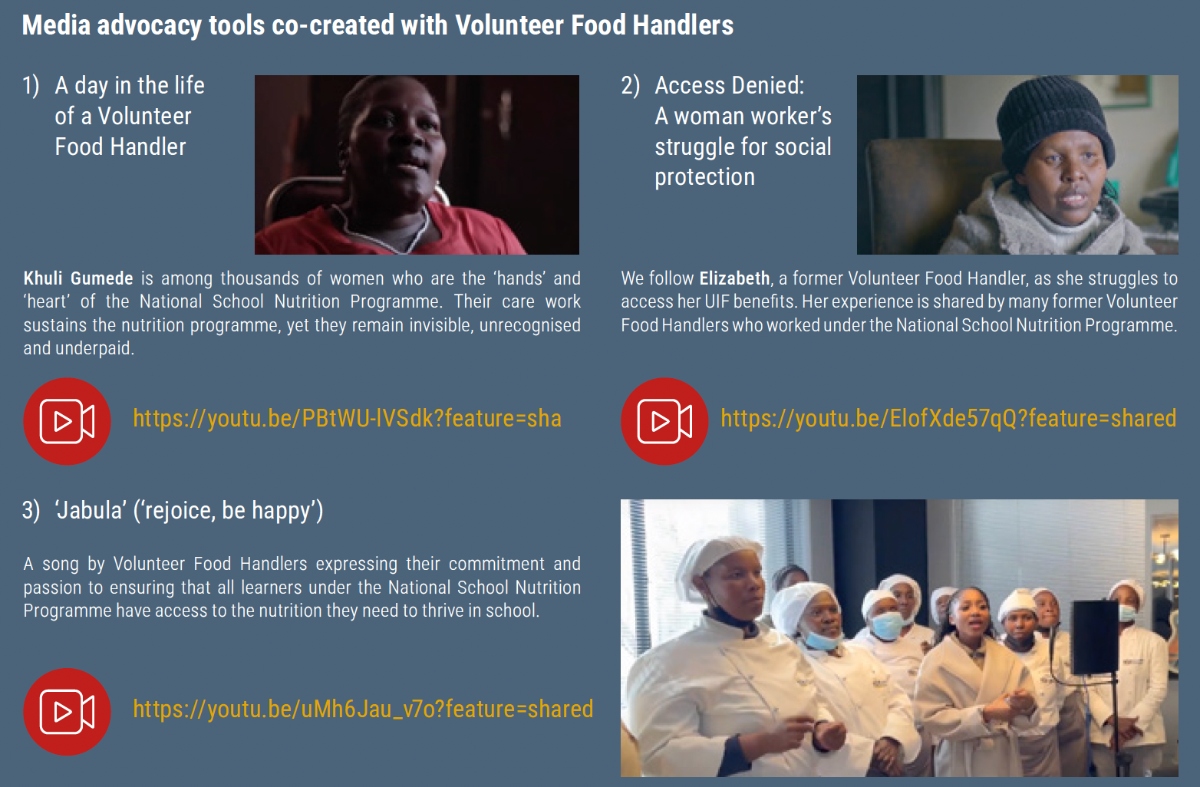
- A day in the life of a Volunteer Food Handler.
- Access Denied: A woman worker’s struggle for social protection.
- Jabula song.
- Unlocking the true value of women’s work in school nutrition.
- Valuing care work: What are the prospects for women in the National School Nutrition Programme?
- The double burden: Women, work and the cost of being invisible.
- The true value of Volunteer Food Handlers: Our story in 2024.
- Women care workers organise for decent work.

Key contact: Nina Benjamin ([email protected])

